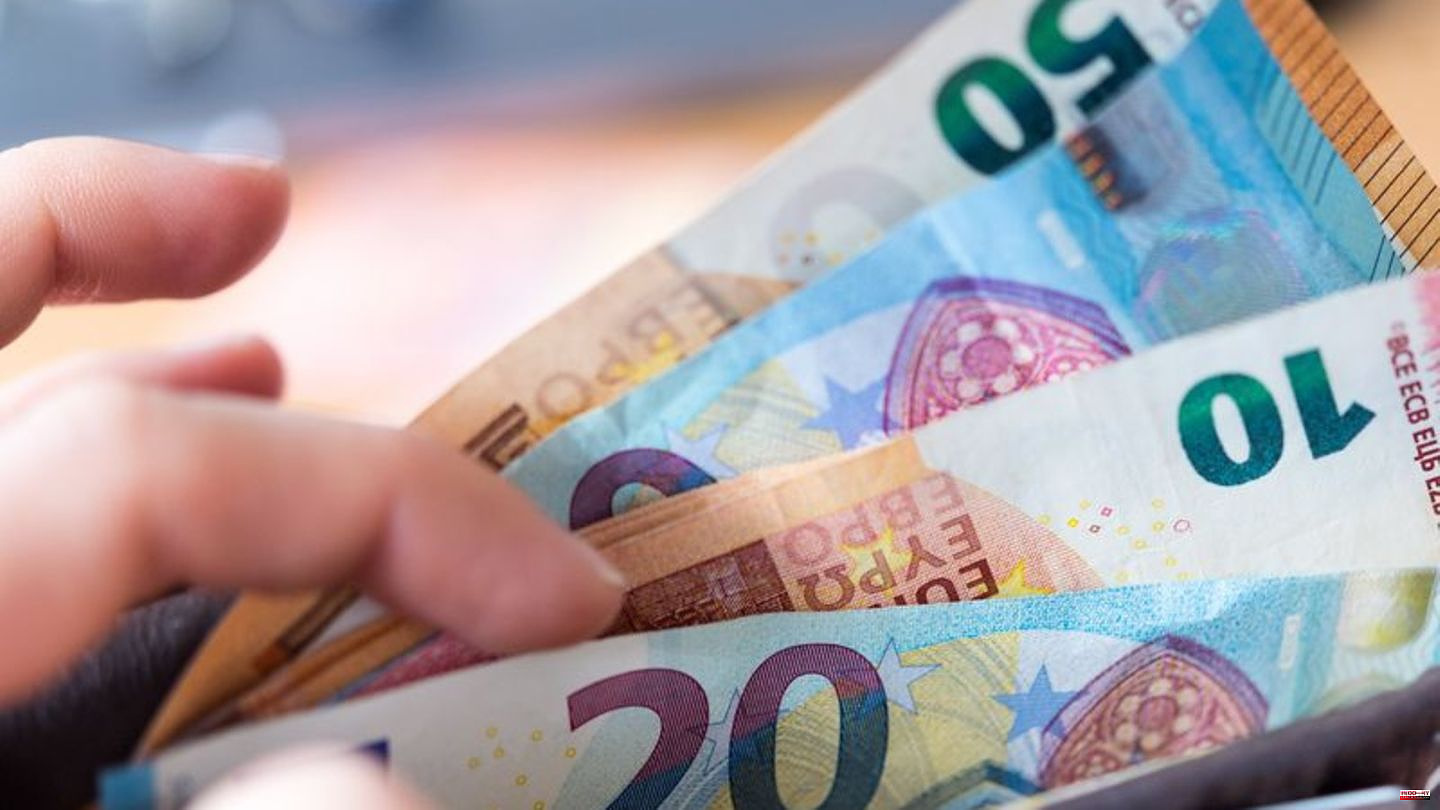Before the planned adoption of the energy price brakes in the Bundestag, there is clear criticism of the plans. The Federal Association of Consumers and the Verdi trade union warned on Wednesday in Berlin that high energy prices would have a major impact despite the price brakes. The industry was also dissatisfied.
The price brakes are to be decided in the Bundestag on Thursday and cushion the rising energy costs. Citizens and small and medium-sized companies are to receive 80 percent of their natural gas consumption at 12 cents per kilowatt hour and 80 percent of their heat consumption at 9.5 cents per kilowatt hour from their suppliers. Industrial customers are to receive 70 percent of their natural gas consumption at 7 cents per kilowatt hour or 70 percent of their heat consumption at 7.5 cents per kilowatt hour from their suppliers.
Verdi boss criticizes social imbalance
Most recently, the traffic light factions had agreed on relief for people who heat with oil or pellets, for example. In addition, a cap on bonuses and dividends in companies that benefit from the brakes will be introduced.
Verdi boss Frank Werneke told the German Press Agency: "The social balance of the measures is not right." The government's performance in terms of security of energy supply deserves the grade satisfactory, but only sufficient to insufficient for the price instruments. "For example, tenants of a poorly insulated two-room apartment have little chance of saving 20 percent," says the Verdi boss. "Roughly speaking, this means a doubling of the prices in relation to 2021. Many people are still overwhelmed."
The head of the Federal Association of Consumers, Ramona Pop, told the dpa: "The price brakes are slowing down - but they need improvement in some areas because they don't work in a targeted manner." As always with "one-size-fits-all" there is a lack of clarity and injustice. Anyone who has consumed a lot should get more than those who have been economical in the past. A minimum quota would have been needed for those who have already saved in recent years.
Werneke said: "The bottom line is that for tenants with low or medium incomes, this means support of a few 100 euros per year. Owners of a large house with higher consumption may be supported with several thousand euros."
Power cuts should be prevented
Pop also said: "The question remains whether the government has done enough to prevent energy blackouts." She spoke out in favor of an automatism - "instead, however, the consumers themselves have to take care of the financial support in the event of imminent energy cuts". Consumers could conclude waiver agreements and suppliers should approach people who already have excessive bills. "But it is missing that the payments on account can be adjusted downwards again."
The President of the Federation of German Industries (BDI), Siegfried Russwurm, had already warned the day before that relief due to the high energy prices would arrive too late or not at all for energy-intensive companies. The gas price brake, which should take effect for large industrial consumers from January, is far too bureaucratic, he told the dpa.
Werneke and Pop advocated that consumers can be helped with a new instrument of direct state payments. "It is urgently necessary to support households with low to middle incomes directly in 2023 - as "energy money"," Werneke demanded.
Pop said Germany urgently needs a system of socially graded direct payments. Finance Minister Christian Lindner (FDP) said that the development of such a system should take another 18 months. "For direct payments, government agencies should be able to link tax ID numbers to IBAN numbers," Pop said. "The family fund and the pension fund are already processing large payments. You can take this as an example to set up such a system of direct payments." For the planned climate money, a mechanism of direct payments is necessary anyway, so that payments by private households for CO2 pricing can be repaid in full.







